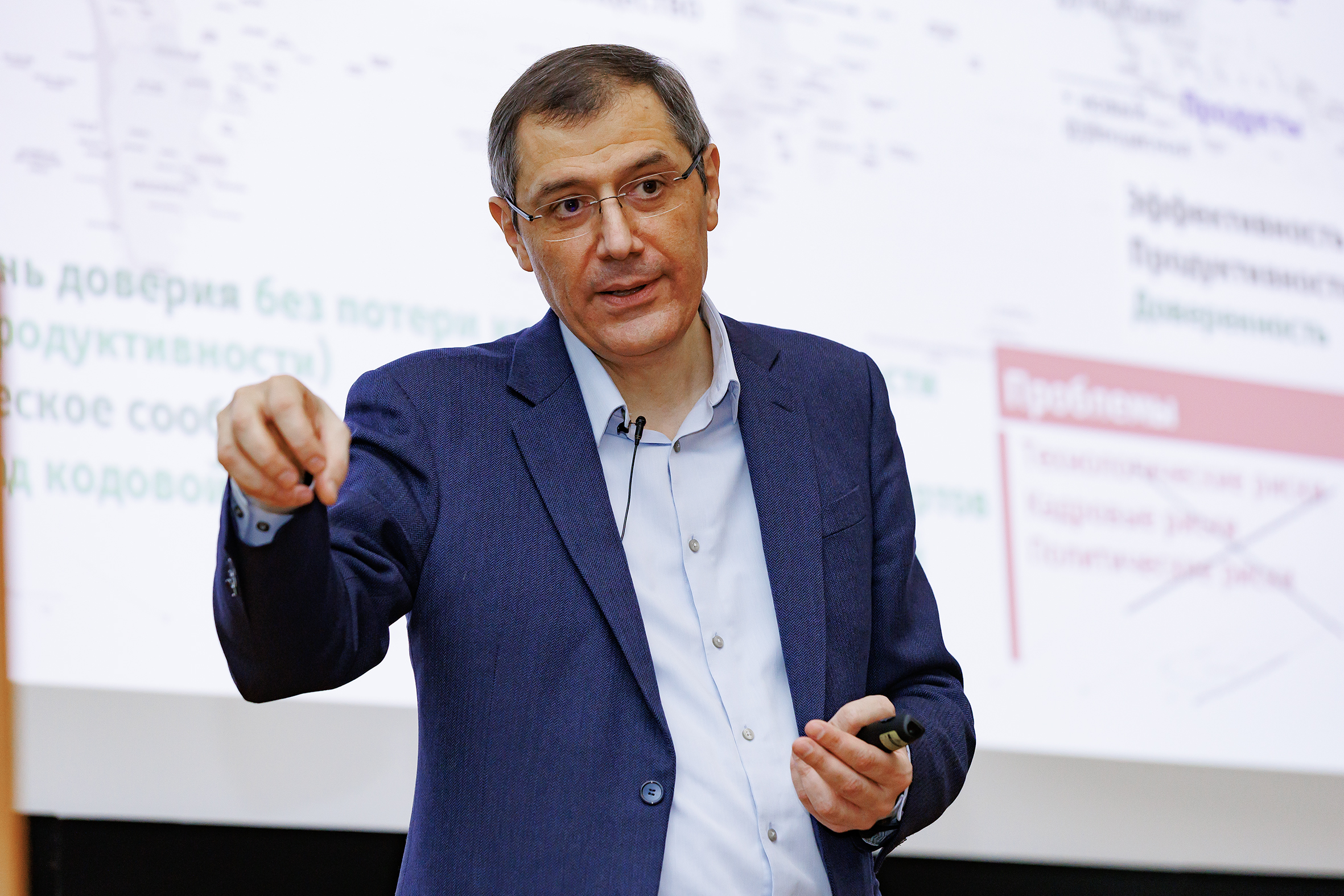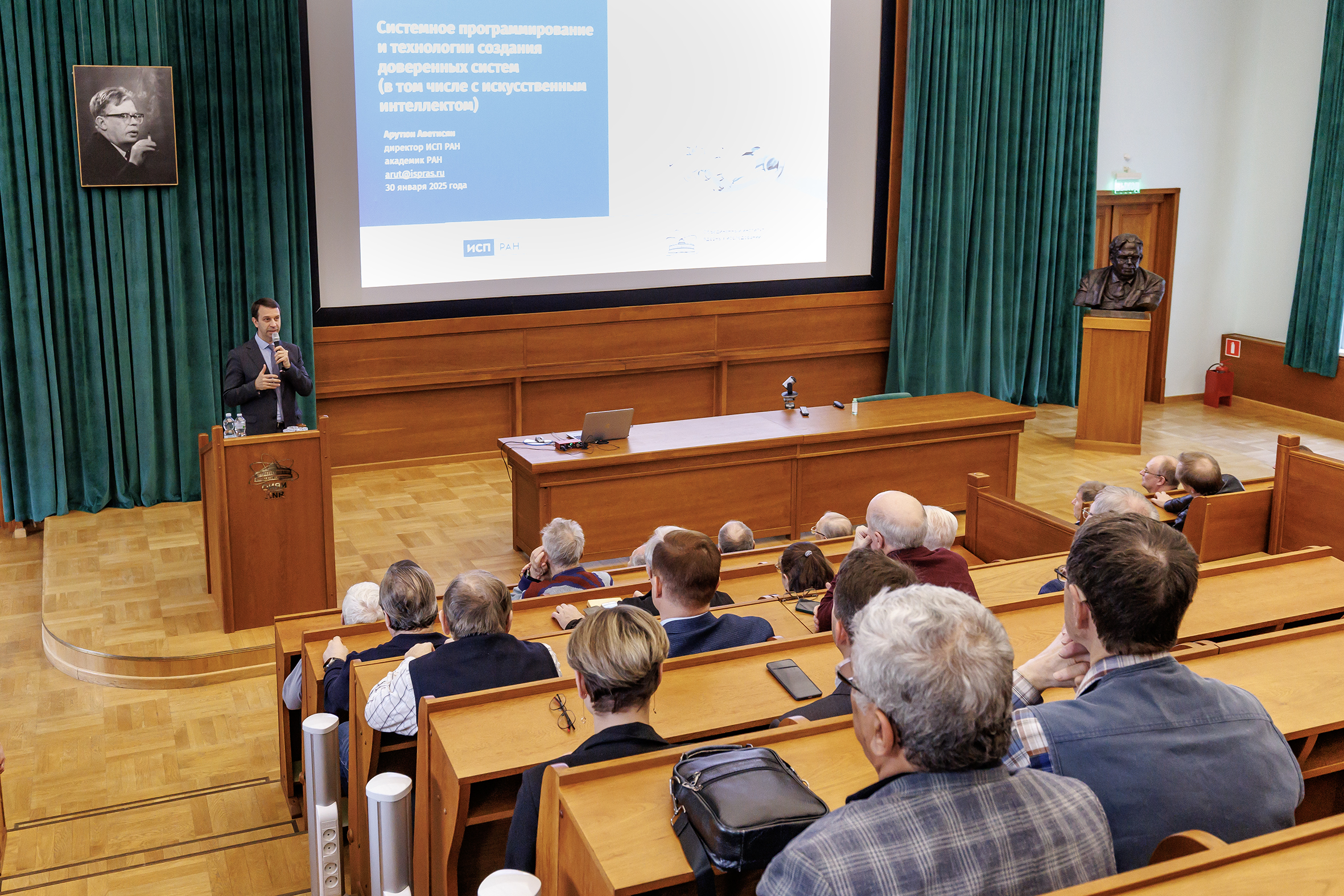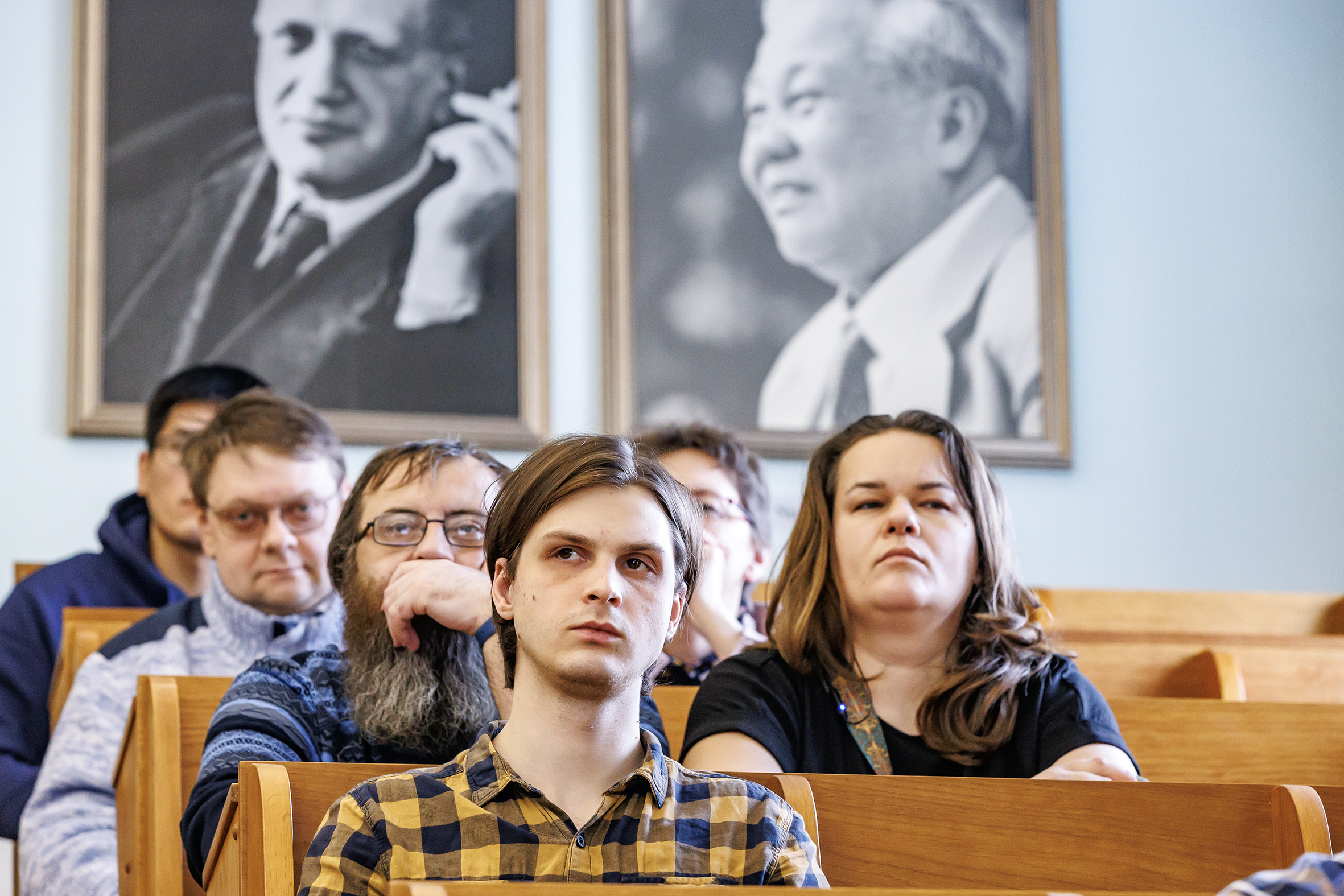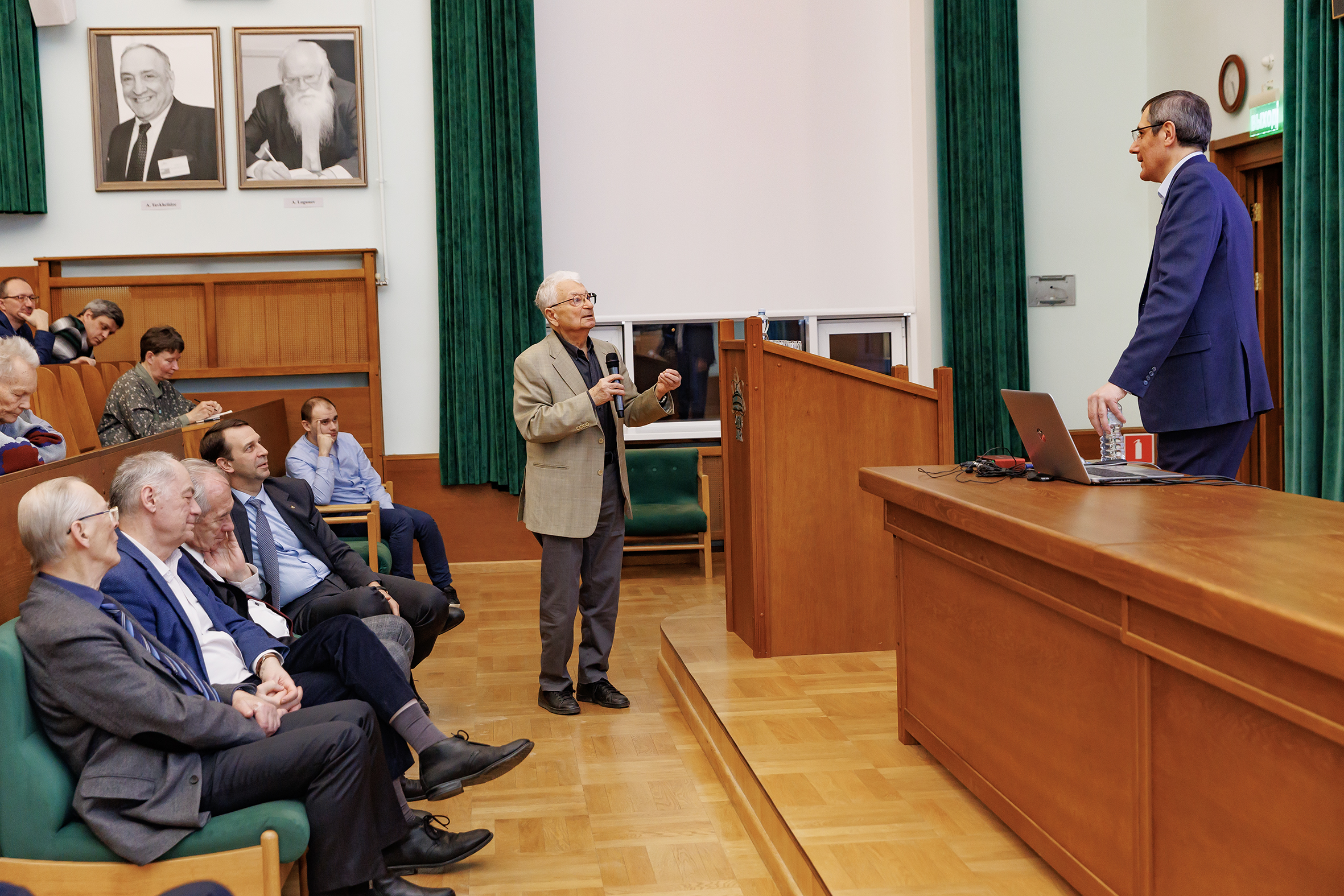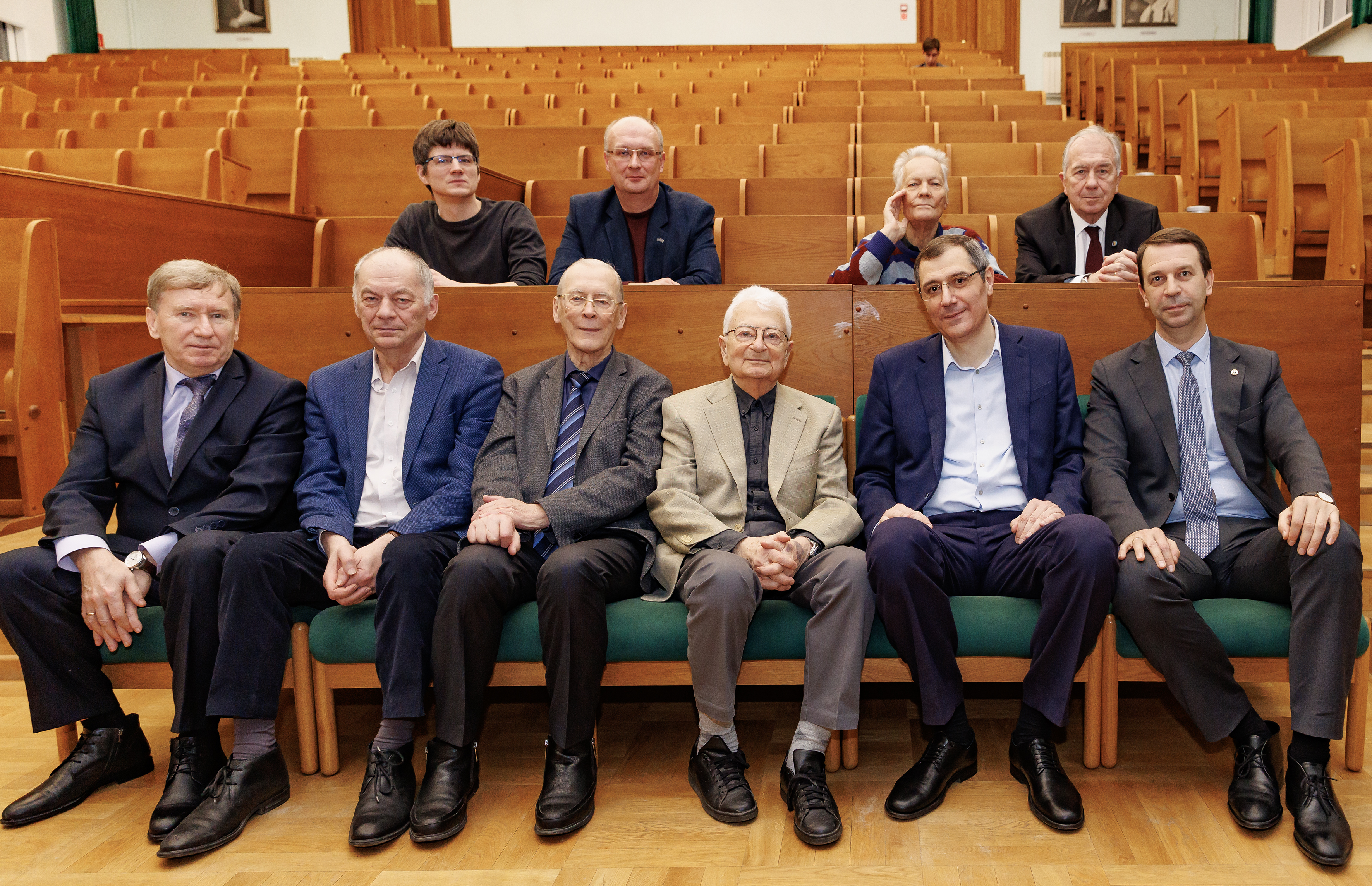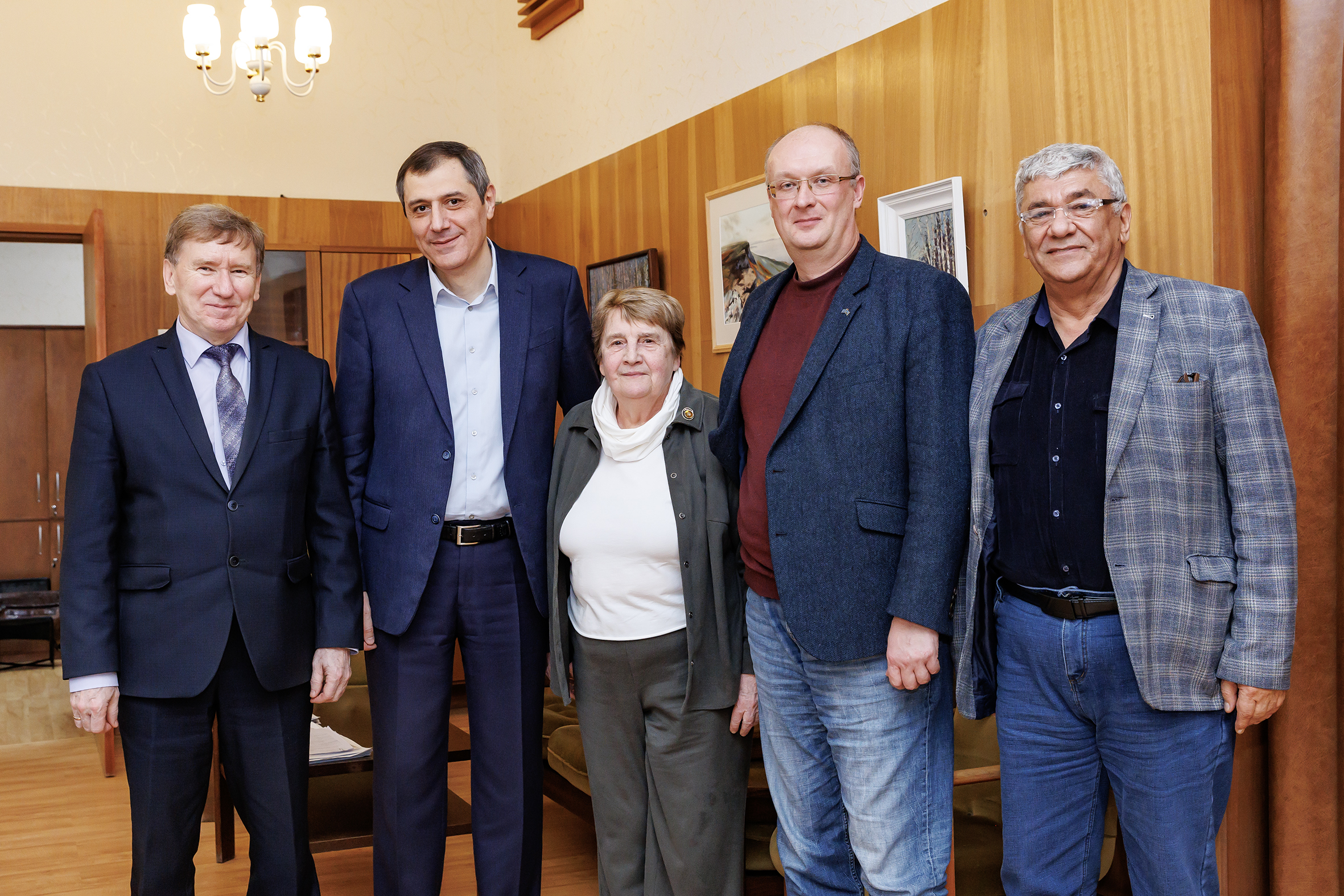Technologies for creating trusted systems discussed at Joint Institute Seminar
News, 05 February 2025
On 30 January, Director of the Ivannikov Institute for System Programming of the Russian Academy of Sciences (ISP RAS), RAS Academician Arutyun Avetisyan spoke at a Joint Institute Seminar in the Laboratory of Theoretical Physics at JINR. The talk provided plenty of relevant information about system programming and technologies for creating trusted computer systems, including those with artificial intelligence.
In his opening remarks, Director of the Joint Institute, Academician Grigory Trubnikov noted that the RAS Institute of System Programming is a reliable partner of JINR in building computer networks in the Russian Federation for data analysis of large scientific facilities.
“Undoubtedly, taking into account the megascience facilities under construction in Dubna and the Institute’s Member States and partner countries, including China, India, Kazakhstan, Latin American countries, and Vietnam, we need scientific tools for developing parallel computing methods for data processing and analysis. We are the creator and owner of an over 160 petabytes data warehouse, the largest one in all Member States. It is a unique scientific infrastructure with data lakes, a heterogeneous computing environment, and fast telecommunication channels. On the one hand, such an infrastructure is a great resource. On the other hand, data is one of the today’s world currencies, and aside from just collecting it, you have to be able to store it and ensure its reliability. Our institutes effectively collaborate in this area,” Grigory Trubnikov emphasied.
Arutyun Avetisyan highlighted that fruitful cooperation between the two scientific centres has a long history. “We hope to preserve our scientific friendship,” he said. The ISP RAS Director noted that a year ago JINR, ISP RAS, and Kurchatov Institute signed an agreement to establish a consortium for IT support of megascience research infrastructure. The consortium, in which the Laboratory of Information Technologies at JINR plays a crucial role, aims to accomplish the task of combining Russian IT infrastructure and personnel in order to ensure the functioning and development of a network of research megascience facilities.
Academician Avetisyan noted that the development of the IT industry is proceeding rapidly, with the civilian sector heavily contributing in terms of innovation in the last 20 years. “It is important to understand that as the consumers of technology, we are the customers, too,” the speaker explained. Further growth of IT technologies is only possible in a collaborative economy, closely linked with the concept of open source code. The quality of any platform, regardless of its cost, depends on the number of participants. Whether we are talking about artificial intelligence or, for example, biometrics, it is essential that the product is high quality, i.e. it ensures efficiency, productivity, and security. In other words, it has to be trusted.
Contrary to public concerns, artificial intelligence has no subjectivity. Today’s so-called weak AI, which is developing all over the world, can solve a specific task for which it is programmed. Due to limited data sample, it can make mistakes and be vulnerable. Strong AI does not exist and is not expected in the near future. Such AI is theoretically capable of abstract thinking, planning, solving tasks at the human level, and decision making even when faced with uncertainty.
The speaker highlighted three examples of current threats of using AI: accidents caused by self-driving cars, deepfake scams, and AI’s lack of ethics in communicating with people. Academician Avetisyan emphasised that due to these and other risks, it is necessary to ensure the security (trustworthiness) of AI in both cybersecurity and socio-humanitarian aspects (issues of generative AI’s honesty, manipulation of public opinion and individual consciousness, etc.).
AI bugs and vulnerabilities are different from the usual software vulnerabilities. To protect against them, it is not enough to use the usual methods such as access control, antiviruses, etc. The ISP RAS Research Centre of Trusted Artificial Intelligence conducts research and development of methods and technologies necessary at all stages of creating models of trusted artificial intelligence. Tools to taclke possible threats have already been developed.
Since 2023, regulation of trusted AI has been actively developing in the world, and there has been a steady increase in the number of legislative initiatives. More and more countries are introducing mandatory labelling of generative AI content due to how often it is not possible to determine whether the content was generated by a neural network or not.
During the discussion following the talk, Arutyun Avetisyan answered numerous questions from the audience.
As part of his visit to Dubna, Arutyun Avetisyan met with the MLIT JINR leadership, including Director Sergei Shmatov, Scientific Leader Vladimir Korenkov, and his Deputy Tatiana Strizh. The meeting was attended by JINR Director’s Special Representative for Educational Policy Samvel Harutyunyan. The participants discussed the ongoing scientific cooperation in information technology and the opportunities for its development. In particular, the issues of creating a shared cloud infrastructure and an open repository of trusted software and datasets were considered.
